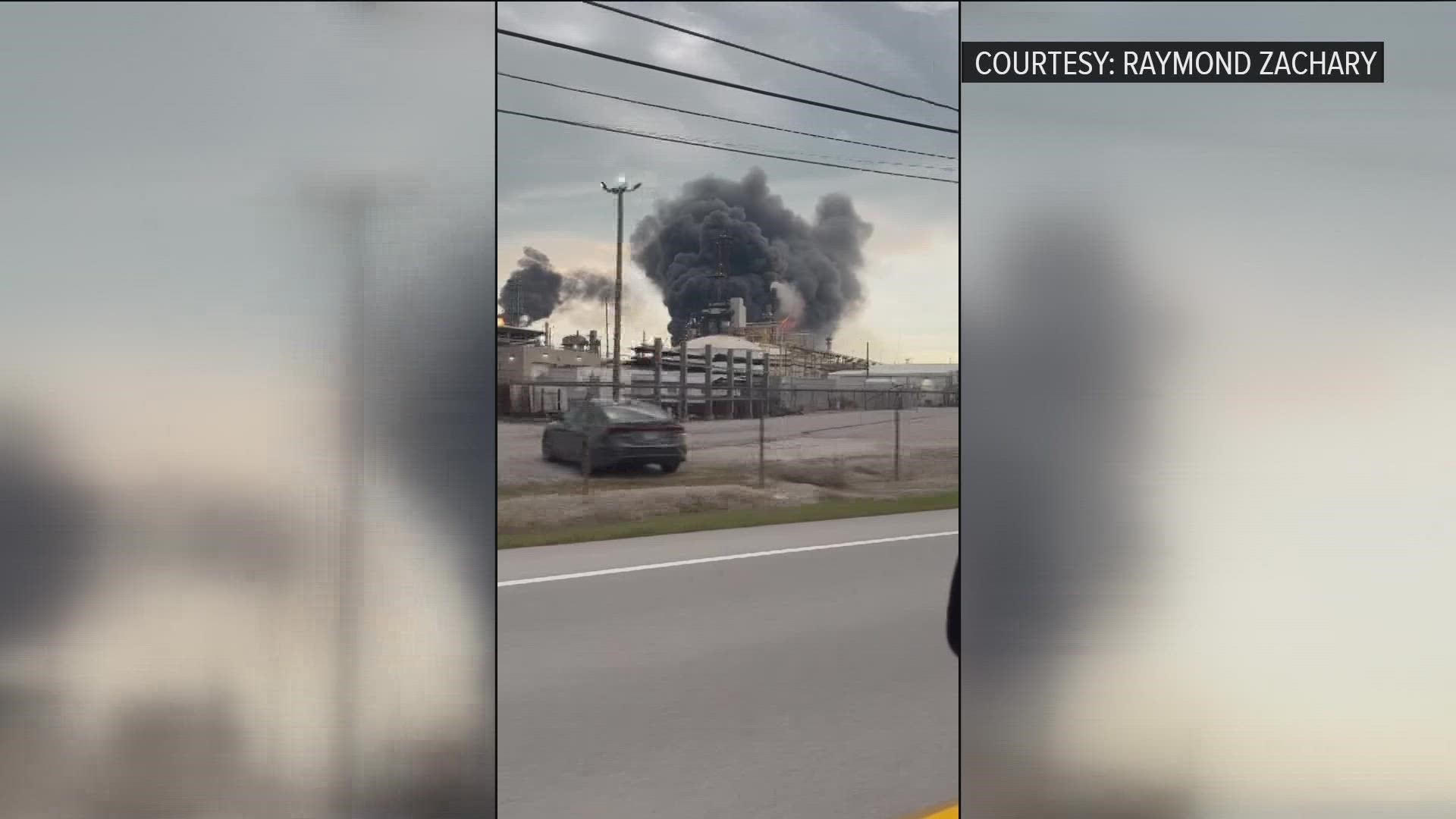OREGON, Ohio — Two people were killed after an explosion Tuesday at the BP-Husky Refinery along Cedar Point Road in Oregon, just east of Toledo.
The refinery produces gasoline, liquefied petroleum gas, diesel fuels, jet fuel, propane, propylene, flue gases, kerosene, Sulphur, heating oil, pet coke and asphalt. It has been in operation for more than 100 years.
Timeline history of the BP-Husky refinery in Oregon:
1919: The Oregon refinery was originally built for Standard Oil Company of Ohio. The original operation processed 30,000 barrels of crude oil a day, according to BP's company website.
Over time the refinery has become capable of processing 160,000 barrels a day.
2007: In response to a 2005 refinery explosion in Texas that killed 15 workers, a federal panel led by former secretary of state James A. Baker III issued a 347-page report critical of BP's safety culture. The report specifically called out the company's Toledo-area operation, saying workers believe the company put profit ahead of safety.
BP responded by saying it would adopt the panel's recommendations and take other steps to improve safety.
2008: Husky Energy and BP establish an agreement to share ownership of the Oregon refinery along with another refinery in Canada. The deal calls for BP to operate the Ohio refinery and Husky to operate the Canadian refinery.
2016: The refinery underwent substantial renovations and equipment upgrades that allowed for the site to process greater volumes of lower-cost crude oil from Canada.
2017: The refinery opened an interactive hazard-recognition
training facility. The training facility can reproduce actual workplace scenarios, helping workers learn how to identify potential problems, according to BP's website.
2022: In August, Canada-based Cenovus announced it will pay $300 million to purchase BP's remaining 50% stake in the refinery and assume ownership. Cenovus already owns the other 50%.
Per terms of the deal, Cenovus also will pay for the value of inventory and take over operations when the transaction closes, which is expected to happen later this year. BP and Cenovus will enter into a multi-year product supply agreement.
With the acquisition of the Toledo refinery, Cenovus' total refining capacity will increase to 740,000 barrels per day. The company also operates the refinery in Lima.
More on WTOL:

